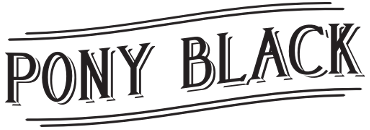News
Ovarian Cancer. July 22 2019
Every 7 hours a woman is diagnosed with ovarian cancer in Australia.
In 2016, two days before my 43rd birthday one of those women was me.
And despite my recent life events I consider myself lucky. I am lucky to be surrounded by people who love and care for me, I am lucky that my life afforded me time and space for treatment and healing and I am lucky that Tasmania, a place I’ve called home for only 7 short years has some of the best and most caring health care professionals in the world.
Like most women who are diagnosed with ovarian cancer - I exhibited no symptoms, well no symptoms from the ovarian cancer any way. My cancer was discovered during an unrelated surgical procedure and soon after that my journey into cancer treatment began.
Through out this journey I’ve met some truly incredible human beings, human beings who also happen to be medical professionals. Prior to ovarian cancer I would see a GP every two years for a routine pap smear, which by the way were all normal. After each clear result I would proudly stick the letter on the fridge like a piece of primary school art or a great exam result. The medical world was one I that I viewed from afar and one that I didn’t think I would be so involved in as a patient at my age. The surgery that unexpectedly uncovered my ovarian cancer was the first time that I had been in hospital as a patient.
I was told of my cancer diagnosis on 16th of March 2016.
The next day I met with gynaecological oncologist Penny Blomfield and on that day a whole classification of new words, medical definitions would apply to me: words like debulking, chemotherapy, oophorectomy, hysterectomy, serous.
I celebrated my birthday on the 18th of March with my close friends and sisters who flew in from Melbourne. We drank a lot of champagne.
Seven days after my initial diagnosis I underwent major surgery to remove my uterus and ovaries. 27 pieces of pathology along with 14 lymph nodes were also taken. The procedure lasted five hours. I remember thinking how surreal this all is. And I remember waking up in recovery to my surgeon Penny looking down on me. She told me that things had gone well and that there wasn’t any visible cancer outside my ovaries and uterus - this was good news. I told her that I loved her, looked at her pearls and wondered if she wore them when she performed surgery. Word around town is that she did, or does. Even if this isn’t true, it’s an image that makes me smile when I think of it.
A few days later, while still in hospital, Penny told me that she was going to be away for a couple of days and that nurse Adele was going to be looking after me, Penny gave me her number and I put it into my phone. I liked her name, Adele. My mum was in the ward and she liked her name too. We both thought of this as a good sign. See when you are a cancer patent , you look for signs, things that give you hope.
Despite this good sign, I thought to my self, how is one nurse, one person, one woman going to make a difference to me and my healing. Surely she’ll be busy, she’ll have many of other patents, would she even know who I was?
But wow, was I wrong! I was wrong, because I learnt that one woman can make a difference, one woman can help you heal, one woman can be there for you, one woman can show you a clearer path. But here’s the thing, we can’t have a system where it is one woman, we need more. We need more women like Adele, like Penny, like my GP Elizabeth.
Ovarian cancer is the deadliest of all women’s cancers.
Each year in Australia approximately 1580 women are diagnosed with ovarian cancer and more than 1047 women die from the disease.
If women are diagnosed at an early stage, they have a 44% chance of being alive and well within five years of diagnosis. But there is no early detection test for ovarian cancer.
So while awareness is good and a very important step in the process of developing a deeper understanding of this disease, it is not enough. Awareness must lead to funding for research.
We need more research into this cancer that affects many women, a cancer that has a high mortality rate, a cancer that is difficult to catch early, a cancer that can be complicated to treat. More funding to develop early diagnostic tools, so that more woman with ovarian cancer can feel that they are ‘lucky’ to have caught this disease early rather that thankful that they have had a wonderful life.
NB. This is an an excerpt of a talk that was presented at a fundraising event a few years ago. I thought that I would be ready to talk about my experience publicly, but it turns out I was not. An event organiser read my speech out while I left the building for a bit.

